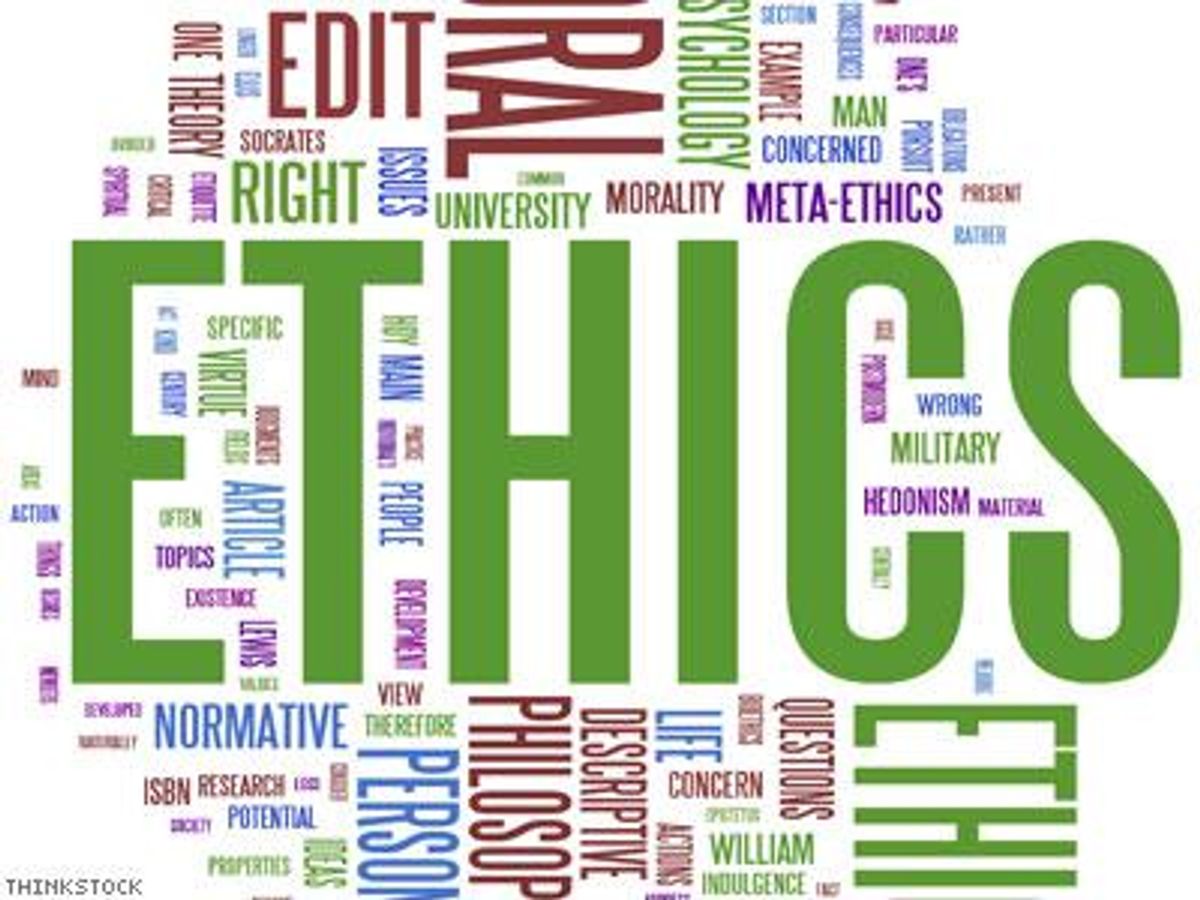As the old adage goes, "you are welcome to your own opinions, but not your own facts." That adage has been attributed to at least three people, in various forms dating back to the 1950s. But it certainly applies when addressing the opinion piece about PrEP published on April 18 by Gay San Diego.
The writer, Robert Brandon Sandor, is clearly opposed to PrEP. His editorial, however, is riddled with factual errors and omissions. A detailed deconstruction of Sandor's piece can be read here.
But the publication of the piece also raised serious questions about the ethics of publishing something that is filled with objectively false information. I reached out to Gay San Diego's editor Morgan M. Hurley to try to get a better understanding of why the publication ran this piece and what, if any obligation the outlet felt it had in reference to retractions or corrections.
"OpEds (opinion editorials in journalism parlance) have been around for almost a century and I will guarantee you that little fact-checking, if any, is done when they are not coming from the paper's own editorial board," Hurley wrote in an email.
Hurley says after an onslaught of criticism over Sandor's piece came to her, she fact checked Sandor's piece. She says she used only the CDC website and Gilead's website for Truvada to fact check Sandor's piece.
"I could substantiate everything he said, except for the things which were his own opinion," Hurley told me. "If you disagree with his opinion, I welcome that."
But the professional organizations for journalists and opinion writers disagree with Hurley's take on her ethical responsibility to correct the factual errors and misleading information provided in the editorial.
The Society of Professional Journalists' Code of Ethics specifically addresses situations related to commentary pieces. "Analysis and commentary should be labeled and not misrepresent facts or context." Hurley correctly acknowledges the piece was labeled as commentary/opinion. But the piece was full of objectively false and deliberating misleading of context.
And the Association of Opinion Journalists' Statement of Principles also directly addressed this situation. "The editorial writer should present facts honestly and fully. The writer should never knowingly mislead the reader, misrepresent a situation, or place any person in a false light. No consequential error should go uncorrected."
To make sure I had the ethics right on this, I reached out to Kelly McBride, senior faculty ethics, writing and reporting for the Poynter Institute. Poynter is one of the leading journalism institutes in the country, and McBride authors the organization's ethics blog.
McBride says editors have an ethical obligation to fact check opinion pieces and work with the writer to edit such pieces to be accurate about the facts. In this situation, McBride says, Hurley missed the boat. While removing the editorial completely is an option, McBride says the very least Hurley has to do to address the ethical issues involved is add a link at the bottom directing readers to other resources and editorial content counter the piece and correcting the factual errors.
So here's the thing. Hurley is pretty pleased with her paper right now for starting a conversation about PrEP.
"That said, this OpEd has done exactly what such a piece is meant to do, and that is establish a conversation with the community, controversial or otherwise," she wrote. "There has been little information in West Coast media about PrEP thus far, and this opinion piece has generated a great amount of detail and information sharing. I'm pleased with that."
She misrepresents even the conversation being generated on her website's own comments section. Out of 17 comments (excluding Morgan's two comments, and Sandor's own) 16 provide direct evidence challenging the factual accuracy of the piece. One supports the general theme of Sandor's claims, with an expression of concern about adherence and development of a Truvada-resistant virus —an opinion rejected by the factual information related to the iPrEx study which proved PrEP was safe and effective. The National Institute of Allergy and Infectious Disease, a US government agency which participated in the study, reports that no resistant virus "occurred among individuals who became HIV-infected during the study,"
As for the concerns about West Coast media reporting on PrEP, a search of Gay San Diego's website revealed no news reports or editorial content on PrEP until the April 18 publication. Hurley says she can't explain why the previous editor of two years had not reported on the intervention. She took the reigns of the paper in November.
As to why in the approximately six months since she took the helm, this is the first printing of anything on PrEP. Why?
"Maybe since I am a lesbian, and our publisher is straight, PrEP was not directly on my radar until recently when I saw there would be a presentation soon at our LGBT center," she explained.
At the end of the day, Hurley is right, a discussion has to happen about PrEP, and particularly in LGBT publications. There is room for reasonable people to disagree about PrEP. But there is not room to publish disinformation, misleading out of context references or factually inaccurate information to promote the conversation. Here's hoping she will revisit her own ethical standards and push for more factually accurate, thoughtful pieces; and as an editor strive to help her writers frame their opinions in ways which do not misrepresent the facts or context and further inform the debate over the intervention.
Editor's Note: Kelly McBride's name was accidentally misspelled in the second reference. It has been corrected. We regret the typo.


















































































